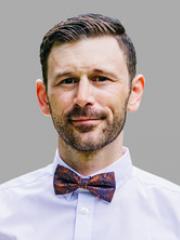Associate Professor Rowan Young

Primary research interest
- Organometallic
- Organic synthesis
- Medicinal chemistry
- Inorganic chemistry
- Transition metals
- Fluorine chemistry
- Pincer ligands
- Frustrated Lewis pairs
- Organometallic chemistry
- Homogeneous catalysis
About me
I obtained my BSc.(Hons) from the University of New South Wales in Australia, then went on to pursue a PhD at the Australian National University’s Research School of Chemistry under the supervision of Professor Anthony Hill. After stints at the University of Oxford and the University of Edinburgh as a research fellow in groups of Andrew Weller and Polly Arnold respectively, I began my independent career at the National University of Singapore in 2014. Since then I have focused on methodology development using pincer complexes and frustrated Lewis pairs to address challenges in small molecule activation, in particular the selective activation of carbon-halide and carbon-chalcogen bonds. My achievements have been recognized with research awards including Asian Chemistry Prizes from Japan and China (2018) and the Thieme Chemistry Journal Award in 2019. In 2022 I was awarded an ARC Future Fellowship, which I assumed at the University of Queensland in mid-2023. The theme of the research for this fellowship is the recycling and repurposing of fluorocarbons through selective activation using organometallic techniques.
Research focus and collaborations
My group is focused on developing new methods for converting cheap and unreactive starting materials into valuable complex molecules. To do this, we use a combination of main group frustrated Lewis pairs, transition metal pincer complexes and acidic metal hydrides.
Our goals are to:
- Develop new catalytic systems
- Discover new reactions/reactivity that allows us to do unique chemistry
- Understand how it all works
Funded projects
- ARC Discovery Project (2025-2027), Harvesting fluorine from fluorocarbons: Developing transfer fluorination. Total grant value: $508,255.
- ARC Future Fellowship (2022-2026), A top-down approach to synthesising high-value fluorocarbons. Total grant value: $1,162,168.
Teaching interests
Inorganic and organometallic chemistry
Achievements and awards
- ARC Future Fellowship (2022)
- Thieme Journal Award (2019)
- Asian Chemistry Prize (China, 2018)
- Asian Chemistry Prize (Japan, 2018)
- ANU RSC Director’s Prize (2012)
Featured publications
Mandal, D.; Gupta, R.; Young, R. D. Selective monodefluorination and Wittig functionalization of gem-difluoromethyl groups to generate monofluoroalkenes. J. Am. Chem. Soc., 2018, 140, 10682–10686
Sung, S.; Wang, Q.; Krämer, T.; Young, R. D. Synthesis and reactivity of a PCcarbeneP cobalt(I) complex: the missing link in the cobalt PXP pincer series (X = B, C, N). Chem. Sci. 2018, 9, 8234–8241
Mandal, D.; Gupta, R.; Jaiswal, A. K.; Young, R. D. Frustrated Lewis pair meditated selective single fluoride substitution in trifluoromethyl groups. J. Am. Chem. Soc., 2020, 142, 2572-2578
Wang, Q.; Manzano, R. A.; Tinnermann, H.; Sung, S.; Leforestier, B.; Krämer, T.; Young, R. D. Access to and reactivity of Fe(0), Fe(-I), Fe(I) and Fe(II) PCcarbeneP pincer complexes. Angew. Chem. Int. Ed. 2021, 60, 18168-18177
Tinnermann, H.; Sung, S.; Csokas, D.; Toh, Z. H.; Fraser, C.; Young, R. D. Alkali metal adducts of an iron(0) complex and their synergistic FLP-type activation of aliphatic C–X bonds. J. Am. Chem. Soc. 2021, 143, 10700-10708
Khanapur, S.; Lye, K.; Mandal, D.; Wee, X. J.; Robins, E. G.; Young, R. D. Fluorine-18 Labeling of Difluoromethyl and Trifluoromethyl Groups via Monoselective C–F Bond Activation. Angew. Chem. Int. Ed. 2022, 61, e202210917
Researcher biography
I obtained my BSc.(Hons) from the University of New South Wales in Australia, then went on to pursue a PhD at the Australian National University's Research School of Chemistry under the supervision of Professor Anthony Hill. After stints at the University of Oxford and the University of Edinburgh as a research fellow in groups of Andrew Weller and Polly Arnold respectively, I began my independent career at the National University of Singapore in 2014. Since then I have focused on methodology development using pincer complexes and frustrated Lewis pairs to address challenges in small molecule activation, in particular the selective activation of carbon-halide and carbon-chalcogen bonds. My achievements have been recognized with research awards including Asian Chemistry Prizes from Japan and China (2018) and the Thieme Chemistry Journal Award in 2019. In 2022 I was awarded an ARC Future Fellowship, which I assumed at the University of Queensland in mid-2023. The theme of the research for this fellowship is the recycling and repurposing of fluorocarbons through selective activation using organometallic techniques.
